Resource Archive - 2024
SEARCH RESOURCES
You can also search by author name.
RESOURCE TYPES
RESOURCE TOPICS
RESOURCE PROJECTS
RESOURCE YEARS
CESA produced a series of video interviews on the topic of advancing solar for low-and moderate-income communities through collaboration between state energy agencies and community-based organizations.
This report is a series of case studies highlighting the four winners of the 2024 State Leadership in Clean Energy Awards.
This deck is a short series of recommendations to Community-Based Organizations (CBOs) that wish to better understand the Greenhouse Gas Reduction Fund Solar for All competition and how to engage with the Solar for All opportunities. It briefly introduces the Solar for All competition, offers a realistic timeline for programs and funding deployment, and suggests concrete steps and resources for CBOs to support states in ensuring the success of the program.
Washington, DC’s Solar for All program aims to benefit over 100,000 households with incomes at or below 80% of area median income. This case study profiles the program and the ways its administrators have handled outreach and consumer education over the program’s seven-year history.
CESA’s Vero Bourg-Meyer and Simon Sandler from NREL discuss how to use NREL’s System Advisor Model (SAM) to understand low-and middle-income solar program-level economics, incentives, and savings.
This analysis demonstrates that battery storage can cost effectively replace aging fossil-fueled peaker power plants in New England.
This document is a comprehensive list of the functions needed to design and deploy a low- and moderate-income solar program as part of the Greenhouse Gas Reduction Fund Solar for All competition. This list can help states clarify which functions are needed and which are not for each program/sector, evaluate which functions to keep in-house vs. procure externally, and negotiate with EPA with a clearer understanding of next steps.
Community-based organizations (CBOs) pursuing solar energy projects may benefit from additional resources and information to help them achieve their desired clean energy and community-building outcomes.
This issue brief provides recommendations and guidance on incentive rate-setting for states seeking to develop distributed (behind-the-meter) energy storage incentive programs. It is intended to help states decide how to structure incentive programs and how to set incentive rates.
- « Previous
- 1
- 2
- 3
- Next »





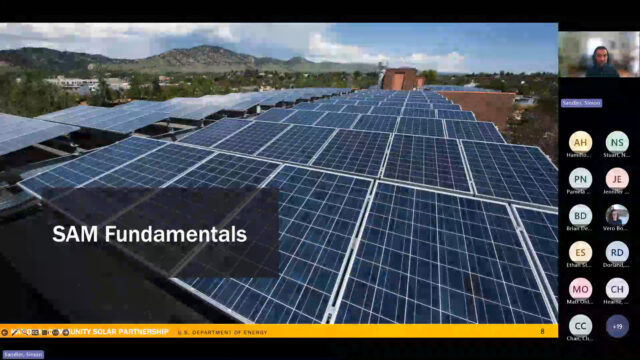
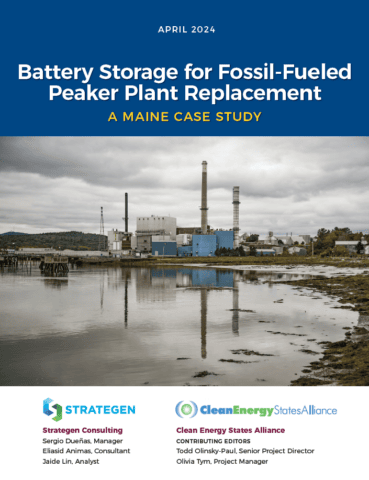
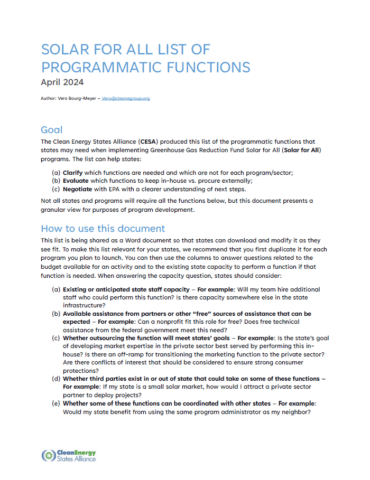
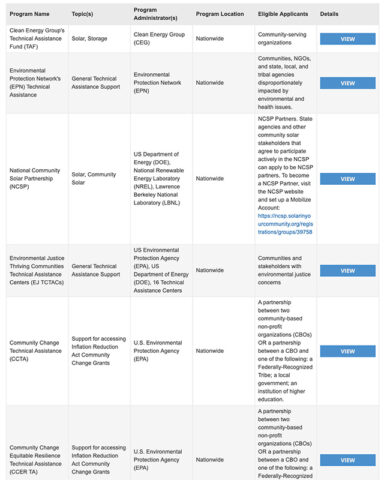
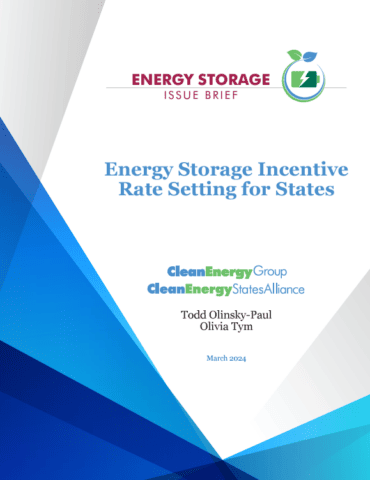
Comments Regarding Maine’s Draft Assessment of Storage Procurement Mechanisms and Cost-Effectiveness
The Clean Energy States Alliance submitted comments to the Maine Governor’s Energy Office (GEO) in response to their Opportunity for Comment Regarding Draft Assessment of Storage Procurement Mechanisms and Cost-effectiveness.